On 16 September last Paul Graham told RTE’s ‘Liveline’ that he had been sexually abused by a senior figure in the Orange Order. Although not named, the abuser was Thomas Passmore, the County Grand Master of Belfast Loyal Orange Lodge. That Passmore was a paedophile will not come as news to the Northern Ireland Office, MI5 and MI6. In 1973 he was named in a press briefing prepared by the British Army at Lisburn, Northern Ireland. The briefing concerned Tara, a Loyalist paramilitary organisation led by William McGrath, the notorious child rapist and Housefather at Kincora Boys’ Home. McGrath, who acted as an agent for MI5 and MI6, was convicted for child rape in 1981.
To its credit, a number of senior military figures in the British Army tried to put an end to the abuse of children at Kincora. Foremost among them was Captain Colin Wallace. He and his military colleagues were thwarted by the NIO, MI5 and MI6, especially by a senior MI5 officer called Ian Cameron. Cameron was once a runner for the post of Director General of MI5. Those organisations and the PSNI persist to this day in covering up the full extent of the abuse at Kincora and elsewhere.
The 1973 Tara Press Briefing (’73 TPB) described how ‘other people closely associated with McGrath and aware of his activities are, Thomas PASSMORE, Rev PAISLEY, Rev Martin SMYTH, James MOLYNEAUX and Sir Knox CUNNINGHAM QC MP’.
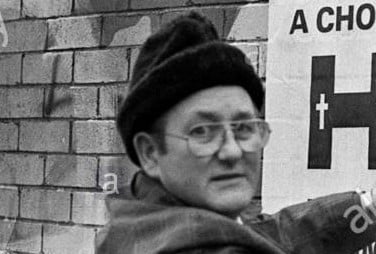
In July 2018 Village published an article entitled ‘Kincora’s Smoking Guns: The Documents With Hugh Mooney’s Handwriting On Them’ which included a description of ’73 TPB.
The ‘Kincora’s Smoking Guns’ article also described a number of other documents which demonstrated that the British Government knew about the sexual abuse of children at Kincora Boys’ Home long before the scandal was exposed by The Irish Independent in 1980. In addition, it demonstrated how a number of journalists Wallace had briefed remembered the Tara briefing. If that wasn’t enough, a number of Wallace’s colleagues at British Army HQ, Lisburn, also confirmed they knew about McGrath. Regrettably, Judge Hart who conducted a lighweight inquiry into Kincora was unable to comprehend the significance of any of this before he published his lamentable mistake-riddled report in 2017.
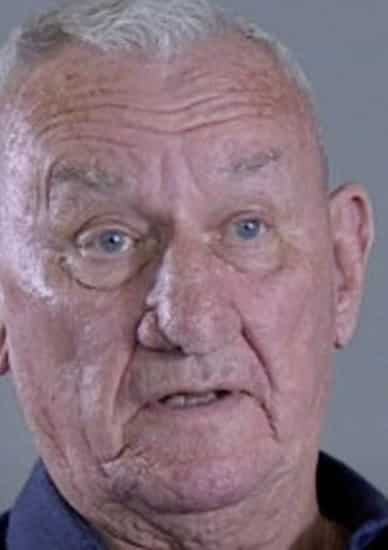
Paul Graham’s RTE interview can be heard at https://www.rte.ie/radio/radioplayer/html5/#/radio1/21620062
Passmore was not named during the RTE interview but is the Orange Order figure mentioned briefly (at 13 minutes 30 seconds).
The fact that Passmore abused Paul Graham would explain why he did nothing to halt the rape of children perpetrated by his friend and brother Orangeman William McGrath when he was informed about it. It is extremely unlikely that Paul Graham was Passmore’s only victim.

Richard Kerr, who was a resident at Kincora, has long since described how he too was abused by Orangemen.
The reference to Passmore in ’73 TPB was not highlighted in the ‘Kincora Smoking Guns’ article as its focus was on other aspects of the Kincora scandal. However, a copy of the 1973 document was reproduced in full in the printed edition of Village.
WAS THOMAS PASSMORE AN MI5 AGENT?
Thomas Passmore JP, was a senior Loyalist politician and Orangeman who operated at the highest levels of Unionist politics in the 1970s and 1980s. He became County Grand Master of Belfast Loyal Orange Lodge in 1973. He was unmarried and lived in Townsend Street, Belfast.

He was not only an associate of McGrath but purchased the printing press which McGrath’s paramilitary group Tara used for its publicity. Passmore published an evangelical magazine with it. Like McGrath, Passmore believed that the Protestants of Ireland were descendants of one of the lost tribes of Israel.
He was briefly a member of the Woodvale Defence Association in 1970s. It was set up by Alan Moon who was soon replaced by Charles Harding Smith who later became Chairman of the UDA. Passmore later became Chairman of the Woodvale Unionist Association. It supported the Ulster Workers Council (UWC) strike that brought down the 1974 power-sharing Government of 1974.
Roy Garland was a member of Tara but walked out of it in 1971 when he discovered that McGrath was abusing boys. He immediately began trying to put a stop to it by telling the Orange Order of which McGrath was a senior member. Passmore was one of those who blocked the taking of any action against McGrath. He may have done this for any one of three reasons: first, because he wanted to protect a fellow child abuser; second, because he was being blackmailed by MI5 and MI6 for whom McGrath was an agent; third, because by 1973 he had become an MI5/6 agent. Perhaps it was a combination of all of the foregoing. Roy Garland persisted in his efforts to put an end to McGrath’s abuses but met brick walls everywhere he turned.
In 1976, the IRA killed Passmore’s father in an attack which he claimed was aimed at him.
When Merlyn Rees was NI Secretary, MI5 smeared him and other Labour politicians as part of what they called Operation Clockwork Orange. One of the smears was that he was easy on Republican paramilitaries, especially his release of internees. Passmore reflected these views perfectly. On 3 December 1975 The Belfast Telegraph reported that ‘Mr. Thomas Passmore, said the fact that an ex-detainee had been killed while working with a bomb exposed the foolishness of Mr. Rees’ security policies…’
Passmore opposed the short-lived and unsuccessful 1977 United Unionist Action Council (UUAC) strike. It was led by Ian Paisley of the DUP and Ernie Baird, then leader of the United Ulster Unionist Movement (UUUM). The strike was disrupted by the release of an anonymous document which bears all the hallmarks of an MI5 dirty trick. It portrayed some of the UUAC leaders as homosexuals, something that was deemed reprehensible in Loyalist circles at that time. On 23 April, 1977, Passmore launched a verbal attack on the strike which was due to commence in early May. One of his allegations was that a member of the UUAC had been involved in discussions with the IRA. A question that now arises is this: did Passmore oppose the strike of his own volition or because he was blackmailed into opposing it by MI5 officers because they knew he was a paedophile? Indeed, might he already have been an MI5 agent? One thing is certain: whatever McGrath knew about him, MI5 knew about him. By 1977 many of those involved in the paedophile ring which swirled around McGrath were MI5 agents, assets or blackmail victims. They included John McKeague, Alan Campbell and Joe Mains. There were others.
Further details about the 1977 strike can be found at https://cain.ulster.ac.uk/events/uuac/chron.htm
When a political trend involving ‘Ulster nationalism’ raised its head, McGrath – then still a powerful figure in Loyalist and Orange politics while also an MI5 agent – came out and opposed it. On 12 July 1978 the Belfast Telegraph reported that ‘Mr. Thomas Passmore, the Belfast Orange leader, said loyalists talking about Ulster nationalism were playing into their enemies’ hands.”
Like McGrath, Passmore was not trusted by Loyalist paramilitaries. The UVF in particular believed McGrath was an MI5 agent.
In 1982 Passmore was elected to the Northern Ireland Assembly representing Belfast West.
Passmore’s interest in boys was no secret in Northern Ireland. In the 1980s the Northern Ireland writer and Kincora whistleblower Robin Bryans told Colin Wallace and Fred Holroyd that Passmore was a child abuser. Bryans was a cousin of John Bryans, the Grand Master of the Orange Order.
Passmore died in 1989.
Passmore operated at the centre of Orange and Unionist politics. MI5, MI6, the NIO and the PSNI Special Branch (as successor to the RUC Special Branch) must all hold files on such a significant political figure. They should now release their respective files on him. Unfortunately, since these organisations are run by callous officials who would prefer to cover up the wrongdoing of their predecessors than help the surviving victims of sex abuse, there is no prospect that this will happen, especially if he was an agent and – like McGrath, Mains, McKeague and Campbell – was allowed to rape children with impunity as a reward. Ian Cameron of MI5 bears an enormous responsibility for the rapes that the child abuse victims suffered at this time. So too do the cruel and ruthless men who ran MI5 in London during the 1970s: Sir Michael Hanley, Sir John Jones and Sir Howard Smith. Sir Maurice Oldfield at MI6 was another monster who let the children suffer to keep the Kincora operation afloat.
What is shocking is that Passmore was ever appointed as a Justice of the Peace. His appointment was made by the mid 1960s which was after his rape of Paul Graham. He continued to serve as a JP and rose in the Orange Order despite his links to at least two paramilitary leaders, i.e. Charles Harding Smith of the UDA and William McGrath of Tara.
The file relating to his appointment as a JP must still exist. Who nominated him and who provided character references?
Dr Niall Meehan of Griffith College has conducted extensive research into the abuse of children, especially those at Bethany House. He was the first person to reveal in print that Passmore was a paedophile. He did so in The Belfast Telegraph in February 2017. More recently, he had noted that the Orange Order has declined to comment on the claim that Passmore was Paul Graham’s abuser.
THE HART INQUIRY WAS NOT INTERESTED IN THOMAS PASSMORE

An account of the sexual abuse of Paul Graham first appeared in print in The Examiner in 2013 although it chose not to mention Passmore by name. The article, ‘The Hell of Bethany House, One Man’s Story’ by Danielle McGrane, can be found at https://www.irishexaminer.com/lifestyle/features/the-hell-of-bethany-house-one-mans-story-238365.html
Bethany House was a children’s home in Dublin. Graham was adopted by Edith and William Graham who lived in Belfast. Passmore worked for Mrs Graham at her flower shop. In the piece Graham described Passmore merely as “a strong Protestant’ who went ‘to his church every day, but that didn’t stop him doing what he did to me”.
Colin Wallace discovered that Passmore was the abuser and tried to interest the Hart Inquiry into historical sex abuse in the Belfast part of Graham’s story. He wrote to them on 27 October 2016 and received a puzzling reply on 2 November. When he wrote them again on 7 November he started by pointing out that the Inquiry’s response indicated that ‘either I did not make myself very clear, or your Inquiry did not read my letter very carefully’. This was because the Inquiry had replied stating that: “You will appreciate that allegations in respect of the Bethany Home, which was in Dublin, fall outside our Terms of Reference and therefore cannot be considered by this Inquiry.”
Wallace proceeded to state that:
“I fully understand that, but I did not refer to any allegations involving the Bethany Home. My letter referred to a former resident of that Home, Paul Graham … who claims that he was sexually abused by Thomas Passmore after he left the Home and had been adopted by Edith and William Graham who lived in Belfast. It is further claimed in the press that at the time of the alleged offences, Thomas Passmore worked in a ‘flower shop’ run by Paul Graham’s adopted mother. It should be clear from the foregoing that I was referring to sexual offences that (a) occurred after Paul Graham left Bethany House and (b) that the offences took place in Belfast.
‘What I attempted to highlight in my previous letter was that in my earlier submissions to you there exists credible evidence that, in the 1970s when Roy Garland was attempting to get the Orange Order to take action on his allegations relating to William McGrath’s activities, at least two of the most senior figures in the Orange Order had themselves, it is claimed, a track record of unlawful sexual activity. Clearly, if those allegations are true, there could have been a serious conflict of interest within the Orange Order leadership, and that could account for (but not justify) why the Orange Order appeared to be less than enthusiastic about dealing with Roy Garland’s allegations. Had Roy Garland’s allegations been acted upon at that time, it is likely that years of sexual abuse of children could have been avoided. The thrust of my previous letter was, therefore, to highlight just one of a number of possible reasons why no action was taken against William McGrath until 1980.

You will, of course, recall that Thomas Passmore was one of the individuals named in my 1973 press briefing document on McGrath and Tara as being “aware of” McGrath’s activities.
As a separate issue, I feel the PSNI should investigate Paul Graham’s allegations, if only to bring some form of closure to the issue. I accept, of course, that this is not part of your Inquiry’s remit”.
The ‘Kincora Smoking Guns’ article appeared in the print edition of Village. It is now reproduced here for the first time.
‘KINCORA’S SMOKING GUNS: THE DOCUMENTS WITH HUGH MOONEY’S HANDWRITING ON THEM
THE SCANDAL THAT CONTINUES TO
HAUNT THE BRITISH ESTABLISHMENT
By Joseph de Burca

The 1973 Tara Press Briefing (’73 TPB)
Last April Village published an article about Hugh Mooney, the Trinity College Dublin graduate and ex-Irish Times sub-editor, who went to work for the Information Research Department (IRD), the UK’s black propaganda department. See https://villagemagazine.ie/index.php/2018/05/licence-to-deceive/
The IRD was attached to the Foreign and Commonwealth Office (FCO). Since then more information has emerged about Mooney. It primarily relates to the squalid Kincora Boys Home child sex abuse scandal but also to the Dublin and Monaghan bombings of 1974, and the smearing of politicians. This article will confine itself to Kincora. We will return to the other scandals in forthcoming editions.
The Kincora scandal is not a part of history and should not be consigned to it yet. It is a livid wound on the British body politic. It resembles a festering disease which still has the power to corrupt those in MI5, MI6, the Ministry of Defence (MoD), Whitehall and elsewhere, who have the misfortune to be assigned to maintain the ongoing cover-up that surrounds it. The reason that the truth about it is still so sensitive is because of the significance and influence of the senior Loyalist paramilitaries, DUP and Official Unionist politicians, the UK’s intelligence services managed to ensnare and blackmail. The scandal did not end in the 1980s when it was exposed by The Irish Independent. On the contrary, certain Loyalist blackmail victims were exploited for decades, certainly well into this century.

The scandal became an indigestible truth for TV and print editors in the UK in the 1980s, and remains so to date (with the exception of Channel 4 News and a tiny handful of independent-minded British journalists). The news wallahs of the UK would rather crouch down before the Powers That Shouldn’t Be than investigate it. Yet they criticize the likes of the Russian media for doing precisely what it is they are actually doing – willfully ignoring and covering-up embarrassing State secrets.
MOONEY AND THE 1973 TARA PRESS BRIEFING (’73 TPB)
Hugh Mooney’s handwriting appears on a 1973 document which was prepared by the British Army at Lisburn NI, to brief journalists about Tara, a Loyalist paramilitary organisation led by William McGrath, the Housefather at Kincora. McGrath was convicted for child rape in 1981. According to Hugh Mooney, the document was written by Mike Cunningham. It was furnished to Captain Colin Wallace, a British Army psychological operations (PSYOPS) officer at Lisburn.
At this time Wallace and the British Army were not aware that MI5 and MI6 were running a vile blackmail operation involving the rape of children at Kincora. This would generate a lot of trouble for Wallace later on when Ian Cameron of MI5 would derail his career with venal lies because Wallace was persisting in his attempts to end the child rape at Kincora.
Mooney left HQ NI at the end of 1973, so the Tara document must have been created before then.
PETER BRODERICK TELLS THE TRUTH, SUPPORTS
COLIN WALLACE AND LOSES HIS JOB
Not everyone working in intelligence in NI swam in MI5’s river of filth. Peter Broderick, who was Wallace’s boss at British Army HQ NI in 1973 and 1974, was one such person. He instructed Wallace to disclose the information in the 1973 Tara Press Briefing (’73 TPB) to journalists. Moreover, years later he had the integrity to state on public record that he had initialed it. He made this admission to two journalists, Paul Foot of The Daily Mirror and Private Eye, and Barry Penrose of The Sunday Times.
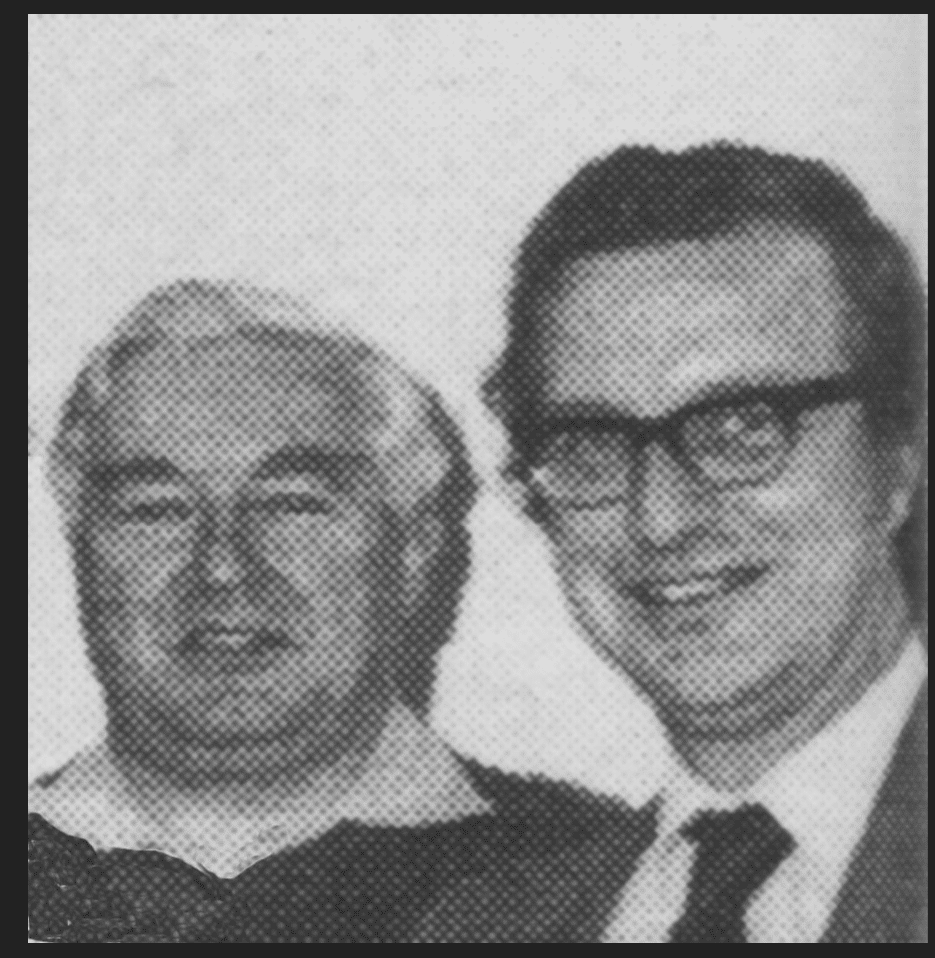
Wallace retained a copy of ‘73 TPB. It described how the ‘OC’ or Officer-in-Command of Tara was ‘William MCGRATH. He is a known homosexual who has conned many people into membership [of Tara] by threatening them with revealing homosexual activities which he himself initiated. He is a prominent figure in Unionist Party politics and in the Orange Order’.
Also that McGrath ‘uses a non-existent evangelical mission as a front for his homosexual activities and also runs a home for children on the 236 Upper Newtonards Road, Belfast (Tel: B’fast 657838)’.
Suffice it to say, this was address and telephone number of Kincora.
When Peter Broderick was given ‘73 TPB, he scrawled the words “Clerks IP” across the top of it. ‘IP’ stands for Information Policy, the unit Wallace worked for. In 1990 Broderick spoke frankly to the renowned journalist Paul Foot about the ’73 TPB document. On 8 February of that year, Foot reported in the Daily Mirror that, “This week, for the first time, Peter Broderick, Wallace’s boss at the time – 1974 – confirmed to me that he saw the document (The TARA press brief used by Wallace to highlight McGrath’s homosexuality and his role in running a children’s home) and wrote on it. ‘That is certainly my writing’, he told me. ‘I saw the document and approved it’.”
Peter Broderick also confirmed this to Barry Penrose of The Sunday Times on 11 February 1990.
‘73 TPB also bears the handwriting of Lt Colonel Adrian Peck, who was head of PSYOPS at HQNI in 1973 and early 1974, i.e. GSO1 Information Policy.
Broderick – a hero of this story – was pushed out of the MoD for telling the truth and supporting Colin Wallace.
OTHER JOURNALISTS SUPPORT COLIN WALLACE
A number of journalists have confirmed that they either saw ‘73 TPB or received a briefing from Wallace in 1973 about Tara based on the information that was contained in it.
Kevin Dowling of the Sunday Mirror was one of them. He gave the Hart Inquiry “a copy of a telex he had sent to his editor in 1973” as a result of information furnished to him by Wallace. The telex stated that “according to Mr. Wallace the CO [i.e. Commanding Officer] of Tara was William McGrath and a homosexual” and that ‘McGrath apparently uses a non-existent evangelical mission as a front to entice young Protestant men into homosexuality. Once in they are potential blackmail victims and soldiers of Tara’.
So, we have a string of journalists, Colin Wallace and Peter Broderick all confirming the authenticity of ‘73 TPB which bears the handwriting of no less a figure than Lt Col. Peck and also Hugh Mooney.
On 13 March 1977, The Sunday Times published an article entitled: ‘The Army’s Secret War in Northern Ireland’ by David Blundy. It reported that at a British Army briefing in 1974 ‘at which a Sunday Times reporter was present attempts were made to link Paisley with the Protestant para-military group called Tara, a small, obscure and ineffective group as Ulster’s para-military organisations go. The Sunday Times has a copy of an Army intelligence summary on Tara which contains accurate details about its organisation. .. One member, which the summary names, is called a ‘homosexual and has conned many people into membership by threatening them with revealing homosexual activities which he had initiated’.
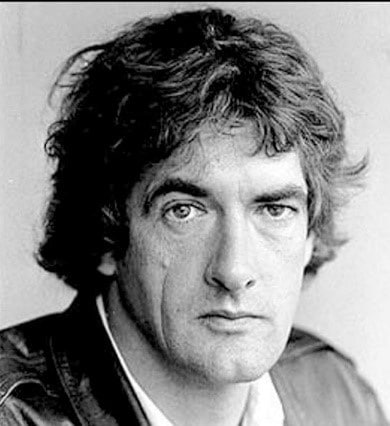
HUGH MOONEY’S HANDWRITTEN
INSERTION ABOUT ROY GARLAND
A man called Roy Garland had been involved in Tara but walked out in 1971. He then spent years trying to expose McGrath and Kincora and became another of the heroes of this appalling saga. He was one of those who told Capt. Brian Gemmell of British military intelligence about the scandal only for Ian Cameron of MI5 to shut down Gemmell’s inquiries. See Village March 2017.
A handwritten note appears on the 1973 Tara Press Briefing which refers to Garland and records that “he said he resigned” from Tara. These words were added in by Hugh Mooney and are entirely accurate.
THE PSYOPS MEETING HUGH MOONEY
ATTENDED ABOUT KINCORA
The Hart Inquiry at least establishes that Hugh Mooney had known something about Kincora. At paragraph 6 of Hart Inquiry document KIN-200535 it is recorded that: “Mr. Mooney said [he] recalled one meeting referring to the Kincora Boys’ Home, but no reference to it as a homosexual honey-trap run by MI5. IP [PSYOPS] had only been interested in TARA the alleged Protestant paramilitary group.”
So what was the meeting about then? PSYOPS [psychological operations] officers did not convene to discuss the weather. Their operations were mainly directed at paramilitary groups such as Tara. Why would a PSYOPS meeting take place during the relentless murderous bedlam of 1973 with Kincora Boys’ Home on the agenda, if it did not relate to McGrath, TARA, sexual abuse, or all three of these topics?
One thing is certain: Hugh Mooney’s account of the PSYOPS meeting is at odds with the Hart Inquiry’s conclusion that Kincora was not referred to by name at Army HQ NI as early as 1973.
MOONEY IDENTIFIED THE AUTHOR OF
‘73 TPB AS ‘MIKE’ CUNNINGHAM OF THE MOD
The words ‘Some off-the -cuff information on Tara for the Press’ appear at the top of ‘73 TPB. According to the Hart Inquiry (see KIN-190004 and KIN-190002), Hugh Mooney asserted that the handwriting was that of ‘Mike Cunningham’. Mike Cunningham was in fact John Cunningham. Mooney, it must be stressed, was not asked by Hart to give evidence to his inquiry. Instead, Hart relied on a number of documents which were furnished to him by the British Government which concerned Mooney.
For his part, Wallace was aware that Cunningham was indeed an MoD officer who had been assigned to the Army Intelligence staff at HQ NI in 1973/74.
Cunningham, it appears, later went on to join MI6.
There is no evidence that Cunningham was ever interviewed by the RUC, or that he provided a statement about ‘73 TPB to any of the many Kincora inquiries including the one led by the callous and deceitful Sir George Terry, Chief Constable of Sussex, a bent cop whose true legacy is that he protected child rapists and enabled them to commit countless further violation of vulnerable children in care. Judge Hart certainly deserves credit for exposing the lies of Terry in his 2017 report.
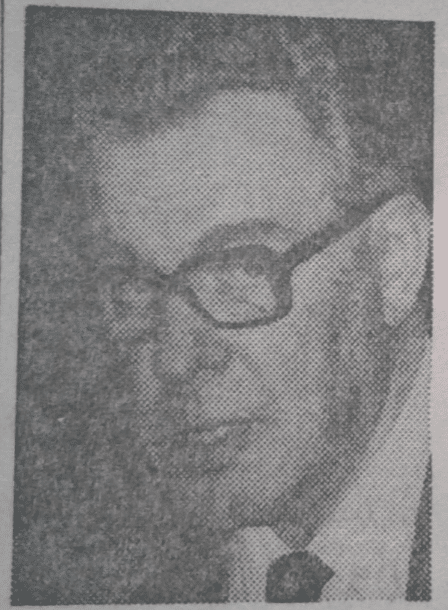
Although the Hart Inquiry did acquire a copy of the ‘73 TPB, there is no evidence that Hart asked Cunningham to provide him with any evidence about it.
Assuming Mooney was correct about Cunningham, he is another of those who emerge from this abyss of lies and horror with credit: he tried to put a halt to the rape of children at Kincora through the production of the ‘73 TPB. Had he been asked to give evidence to Hart, he would have undoubtedly told the truth.
Bearing in mind that ‘73 TPB also bears Hugh Mooney’s annotation, it is most unfortunate that Hart did not speak to Mooney either. Mooney died in December 2017.
Hart did not have the advantage of talking to Broderick either who appears to have died before he would have had an opportunity to make contact with him had he wished so to do
Hart failed to realise the significance of ’73 TPB; moreover, failed to use it as a basis for concluding that the British State knew what was really afoot at Kincora i.e. the exploitation of the children at the home for intelligence purposes.
MOONEY’S FINGERPRINTS ON YET ANOTHER DOCUMENT
According to the Hart Report, Tara was of no significance to the Security Forces until 1974. Yet another document involving Hugh Mooney debunks this mistake.
Colin Wallace asked Gerald Bartlett of the Sunday Telegraph to see if he could find out anything about Tara. Village can reveal here for the first time that a memo headed “Tara” which was dated 19 October ,1973, was sent by Mooney to Ms. Judith Bunbury at the NIO after Bartlett interviewed members of Tara. Mooney’s memo states:
1. I understand that you have interest in this extremist Protestant organisation and I attach a recent proclamation.
2. This and the booklet by Clifford Smith (of which I attach a copy) were sent to PR by Gerald Bartlett of the Sunday Times (sic), who obtained it from Tara in the course of an interview that he had with the leaders recently. [Bartlett actually worked the Sunday Telegraph.]
3. Bartlett told Colin Wallace of PR that the Rev Ian Paisley is implicated with Tara, according to Tara leaders. The booklet is interesting since [Clifford] Smith is known to be close to Paisley and has given sermons in Paisley’s church.”
The memo was copied to Army Intelligence at Lisburn and reinforces the fact that the NIO, IRD and British Army Intelligence had, at the very least, an interest in Tara prior to October 1973, and that Wallace was encouraging the press to do likewise.
MOONEY TALKS FRANKLY TO THE SUNDAY CORRESPONDENT
The disputed findings of the Hart Report are further undermined by a report in The Sunday Correspondent newspaper dated 18 March 1990. Kevin Toolis, one of the newspaper’s more accomplished reporters, secured an interview with “Hugh Mooney, a former Foreign Office ‘black propagandist’ expert who had worked in the same unit in Northern Ireland as Wallace.”. The report went on to say that, “Mooney also admitted that Mr Wallace had told him about the above sex scandal at the Kincora boys home in Belfast – casting further doubt on Government claims that the security forces had no knowledge of the long-running rape and buggery of children in care. ‘I do know he mentioned it. He was dropping it in and feeling his way. He kept pushing it. But I could never understand why. I thought it was totally irrelevant to our concerns. I did get the feeling he was pushing this’.
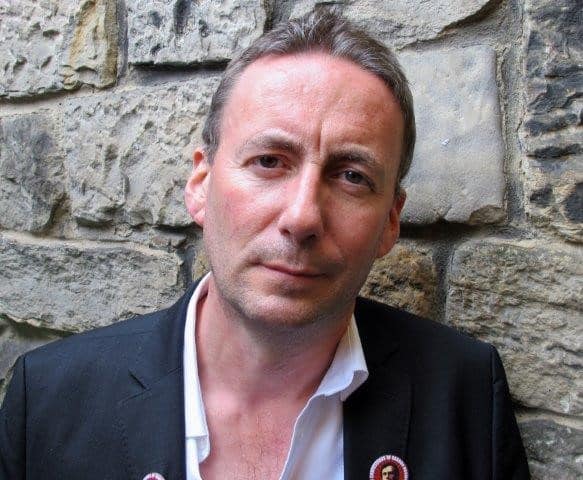
In the extremely unlikely situation that Hugh Mooney was somehow misquoted by the Sunday Correspondent, there is absolutely no evidence that he made any sort of a complaint to the newspaper about that.
Despite the extremely serious nature of what Mooney revealed to Toolis, neither the RUC, nor the Hart Report appear to have asked either man to make a formal statement about any of the issues raised here, nor provide them with any sort of evidence.
ACCORDING TO MOONEY’S LETTER OF 4 DECEMBER 1992, THE MINISTRY OF DEFENCE MISLED THE HOUSE OF COMMONS
There is yet more. In the early 1990s the House of Commons Defence Committee investigated some of the claims made by Colin Wallace. Hugh Mooney was aware of what was going on and sent a letter dated 1 December 1992 to the “Information Department of the FCO. It read as follows
‘Dear Margaret,
‘Since talking to you about the House of Commons Defence Committee’s special report on Colin Wallace, I have had a chance to look at the documents and fear that the Ministry can be accused of misleading the Committee.
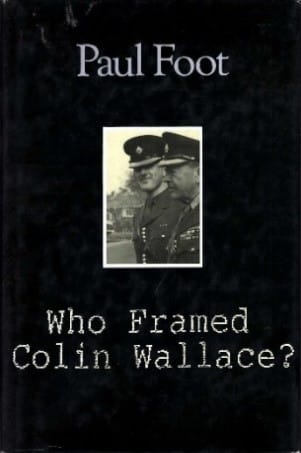
‘In his letter dated 14 February, the clerk to the committee asked for a copy of a document relating to TARA reproduced on page 292 of Paul Foot’s [book] Who Framed Colin Wallace [i.e. the ‘73TPB’]. In reply, the private secretary said: .. “We have not been able to establish whether this is an official document.”
‘This is surprising since the MoD has identified the official who originated the document from his distinctive italic note which said “Some “off-the-cuff” information on TARA for the Press”. I myself recall passing the document to Wallace. Other manuscript notes on the page show that it was entered as page 45 of Information Policy file at Headquarters Northern Ireland. All of this is known to Wallace and his supporters, who can be expected to raise it. The MoD will be found to have lied and Wallace’s credibility will have been increased’.
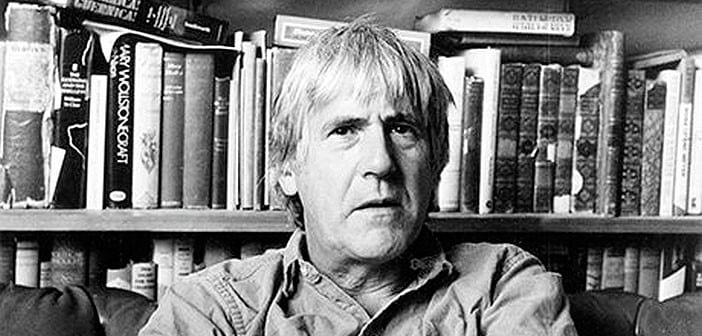
FATAL HART FAILURE
There are a large number of living former residents of Kincora and other care homes whose lives were destroyed by what happened to them in the 1960s and 1970s. Like many other sex abuse survivors, a large number of them lead miserable, lonely and isolated lives. The truth needs to be told by the British Government for their sake.
Despite the fact the Hart Report has revealed much useful information – and is to be commended for so doing – it cannot be taken as the last word on this appalling scandal.
